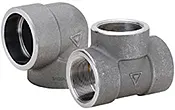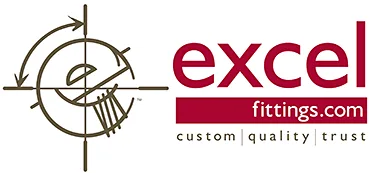Forged Steel
Forged steel is made by combining alloy iron and carbon under very high pressure. This process creates steel that has smoother surfaces, a more compact internal structure, stronger resistance to pulling forces and wear over time, and is more flexible than steel made through other methods.
When steel is heated to its forging temperature, it becomes easy to shape because it becomes flexible and can be molded into the desired shape using force and pressure. This process allows to create strong steel parts that won’t crack.
Hot forged steel
The forging temperature is between 950 and 1250ºC, which is above the temperature of recrystallization. Hot forged steel results in good formability and requires low force to shape.
Hardened steel forging
The forging temperature is between 750 and 950ºC. This temperature leads to limited ductility and requires higher forming forces than hot forging. One of its great advantages is that it is halfway between hot and cold forging, which makes it more versatile.
Cold forged steel
The forging temperature is done under ”room conditions,” under temperatures of up to 150ºC. This type of forging, which results in low formability, requires high forming forces. It has the great advantage of allowing better conservation of the material and a better surface finish.
Standards
- Hydraulic JIC/threaded A-105 material applications up to 12,000 psi
- Meets all applicable ANSI and MSS standards
- Material conforms with ASTM A105
- Material Test reports (MTR’S) available
- Stocked in Class 2000, 3000 and 6000
- Forged Steel Plugs & Bushing may be used for ratings up through Class 6000 as specified by ASME B16.11
- Stocked in sizes 1/8″ to 4″

Need a Fitting or Valve for a Specific Industry or Application?
Excel's experience, craftsmanship, and quality have made it the pipe fitting supplier of choice for many of the world's leading industrial brands and manufacturers. Rely on 40 Years of Engineering Expertise.
